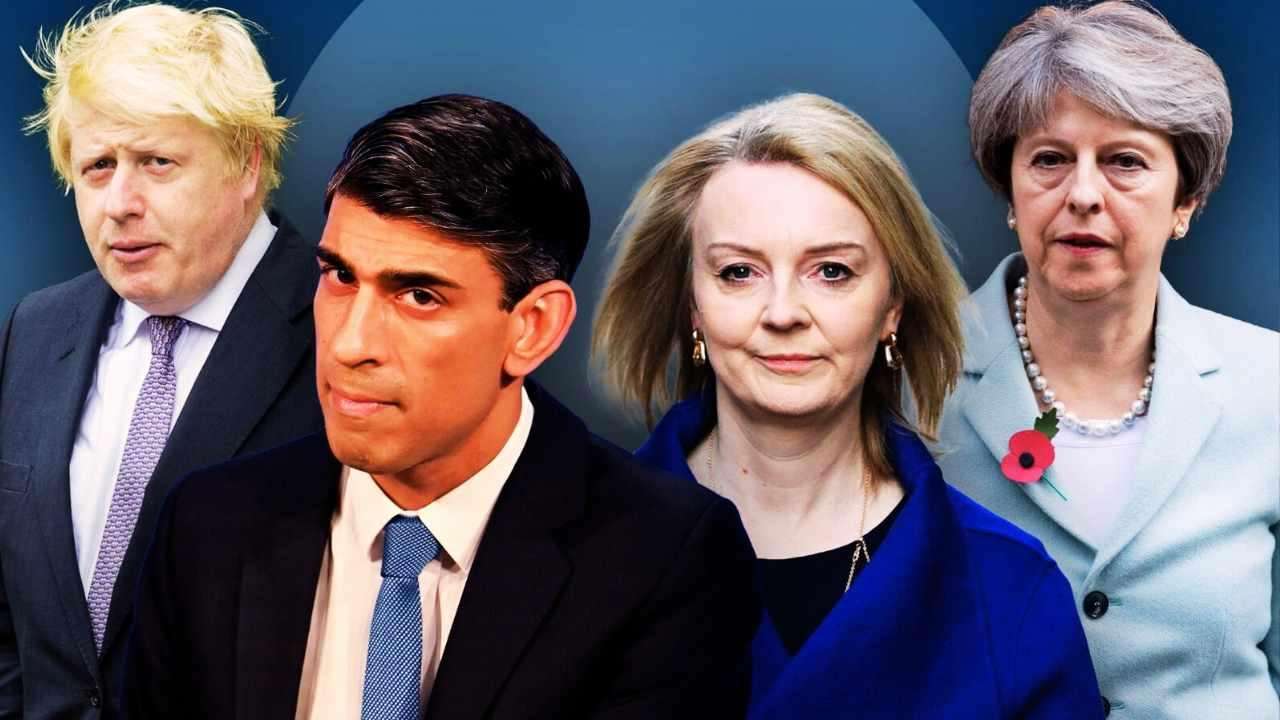The last few years of British politics have been defined by a rapid succession of leaders, each grappling with a nation navigating the fallout of Brexit, a global pandemic, and a spiralling cost of living crisis. The three most recent occupants of 10 Downing Street—Boris Johnson, Liz Truss, and Rishi Sunak—present a study in contrasting styles and political fortunes, with public opinion often oscillating wildly between them. Their time in office, ranging from a mere 49 days to just over three years, leaves a collective legacy of high-stakes drama and unprecedented challenges.
Boris Johnson: The Populist Disruptor
Alexander Boris de Pfeffel Johnson, who served from July 2019 to September 2022, remains arguably the most polarising figure. His success was rooted in his unique personality: a blend of jovial eccentricity, classical education, and a calculated, often shambolic charm that resonated with a broad, particularly working-class, electoral coalition. His key achievement, often cited by supporters, was fulfilling the mandate to "Get Brexit Done," securing a Withdrawal Agreement and winning a decisive 80-seat majority in the 2019 General Election. He also oversaw the rapid rollout of the COVID-19 vaccine programme, a significant logistical and scientific success. His international profile soared as one of the first and most vocal Western leaders to offer staunch support to Ukraine following the Russian invasion, a stance that earned him high praise on the global stage.
However, Johnson's personality was also the source of his downfall. Critics often pointed to a perceived lack of discipline and a propensity for bending rules, culminating in the "Partygate" scandal, which eroded public trust and led to his eventual resignation. His political style was often labelled as "Boom and Bust"—brilliant rhetoric and high-impact policies offset by an alleged culture of carelessness and entitlement in government.
In his personal life, the former Prime Minister is married to Carrie Symonds, with whom he shares two young children, Wilfred and Romy. He has five other children from previous relationships. Since leaving office, Johnson has returned to writing and public speaking, including a column for a major newspaper, and his recent activities often involve international commentary, particularly on the war in Ukraine, maintaining his profile as a global figure.
Liz Truss: The Free-Market Purist
Liz Truss’s tenure, lasting just 49 tumultuous days from September to October 2022, was the shortest in modern British history, yet its impact was seismic. Her unique selling point was her ideological zeal—a devout belief in the power of free markets, deregulation, and substantial, immediate tax cuts, heavily influenced by the Thatcherite wing of the Conservative party. This conviction, while driving her ambition, was also her biggest liability.
Her sole significant act, the so-called "mini-budget," featuring unfunded tax cuts, led to a swift and catastrophic reaction from financial markets. The pound plummeted, pension funds faced collapse, and the Bank of England was forced to intervene. The market’s verdict was an unprecedented failure, prompting a swift U-turn and her resignation. Her personality was often described as intensely focused and unyielding, sometimes to the point of appearing wooden or lacking in necessary political dexterity. Her most prominent "bad habit" was arguably an inability to adapt her core ideology when faced with real-world economic instability.
Prior to becoming Prime Minister, Truss had served in numerous Cabinet roles, notably as Foreign Secretary, where she secured the release of Nazanin Zaghari-Ratcliffe and Anoosheh Ashoori from Iran. She is married to accountant Hugh O'Leary, and they have two daughters. After her resignation, Truss has remained a vocal advocate for her "Trussonomics" principles, writing a book and frequently contributing to conservative think tanks, continuing to argue that her policies were right, but poorly executed or undermined.
Rishi Sunak: The Technocratic Stabiliser
Rishi Sunak, who took office in October 2022, was seen as the antithesis of both his immediate predecessors. His success stems from his unique background as a former Chancellor of the Exchequer, his training as an economist, and his professional demeanour. He was branded as the "sensible hand"—a leader focused on fiscal responsibility and technocratic competence, offering a corrective to the high drama of the Johnson and Truss years.
His key policy success has been his focus on stabilising the economy, with his initial five pledges centring on halving inflation, growing the economy, reducing national debt, cutting NHS waiting lists, and stopping small boats crossing the English Channel. While the UK achieved the goal of halving inflation, the other pledges have proved more challenging. A significant achievement was the agreement of the Windsor Framework with the EU, which sought to resolve issues related to the Northern Ireland Protocol. His calm, data-driven approach is his greatest strength, providing a contrast to the chaos before him.
Sunak's unique personality trait is his meticulous, almost corporate style, which some see as reassuringly competent, yet others view as detached from everyday concerns. His "bad habit," according to critics, is a tendency to appear aloof or overly privileged, with his personal wealth and the private school background sometimes forming a barrier to connecting with the wider public.
He is married to Akshata Murty, the daughter of the co-founder of the Indian technology giant Infosys, and they have two daughters, Krishna and Anoushka. Their family life, often shared via social media, highlights their Hindu faith and cultural heritage, as seen in his hosting of Diwali celebrations at Downing Street. After leaving office in July 2024, Sunak quickly transitioned into the corporate and technology advisory space, leveraging his expertise by taking on roles with major global firms like Microsoft and Anthropic, while also maintaining his political presence on the global circuit. His recent focus demonstrates a clear application of his financial and technological background to the corporate world, a natural extension of his technocratic approach to leadership.








.svg)


_2.jpg)
